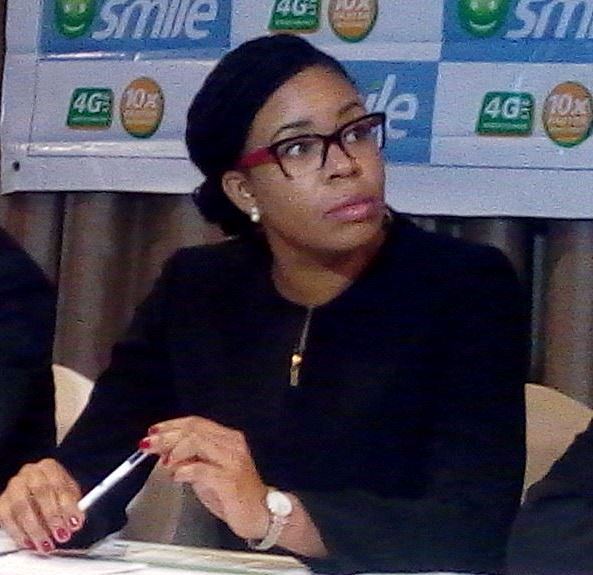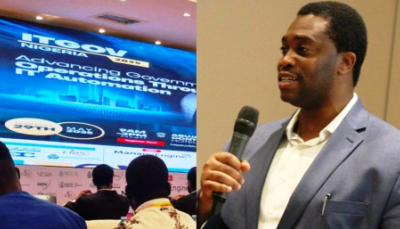Market is expanding for Smile Communications Nigeria Limited. In this interview with IT Edge News, Chief Marketing Officer for one of Nigeria’s major champions of 4G/LTE technology, Mrs. Alero Ladipo, speaks on the company’s rollout plans and why competition ultimately benefits the market .
What are your plans for 2015 in Smile Communications?
One of our major objectives this year is to make sure we maintain our quality and to make sure we expand our coverage. The expansion includes two phases; one of the phases is within the cities we have already covered, the intention is densify area to ensure contiguous coverage. We also plan to introduce our service to new cities and covering some of the major highways as well, so that when people travel, they can also have our service. These are the key things, and in doing all of these, we are growing the brand so that people can see what Smile stands for and what we have achieved so far and how Smile can become part of your life. We want to be the number internet service provider in Nigeria. One key thing that is important to us in Smile is our quality and speed. A lot of people have asked me about the SMEs market and what kind of offering we are putting together for them. I understand that the SMEs market is important and is a key product we are working on. This is where having the right insight from our consumers will also help, so that we can get a good package for the SMEs to buy. Smile Communications is continuously evolving into a partner for SMEs, Corporate, individual or family. All the different proposition we intend to bring out is to ensure that we become that partner so when you are walking down the street, you got Smile and you got smiles on your face. That is what we want to deliver to Nigeria as a whole because we are trying to create connected communities. We want a situation instead of you just talking on the phone; you can also see the person you are talking to.
Will you say Smile is also a driver of Nigeria’s mobile internet revolution?
We are already mobile through our mobile devices. So all you need to do to be mobile and stay connected is to have WiFi. There are two types of products in the market; one is the Smile@work, which is a standalone product which can be used in the office and Smile@home. There is also a router which fits into your pocket which can be used to connect to ten devices. It is all about being mobile; Nigerians are always on the go.
What are your plans to rollout services beyond Lagos and the South West of Nigeria?
By October this year, you will start seeing us in Benin, Kaduna, Enugu. These are actually some of the cities we are going to. Now, obviously from a commercial point of view, we will focus on areas that are more commercial intensive. We want to move to other areas; we started in Ibadan, now in Lagos, Abuja and Port-Harcourt. So, we are gradually expanding to cities across Nigeria.
What’s the acceptance rate for 4G/LTE which Smile is deploying to provide services?
4G just means fourth generation, which is just an improved technology. We are not using 3G, which is what the telcos are using, because at the time when they did their own upgrade, they upgraded to 3G. We have introduced to the market 4G/LTE, it has to do with the speed and the quality of the network. The best person to write a testimonial about your service is your customer. If you ask our customer what is it about Smile? They will say Smile is fast and you can enjoy things like high definition, you can connect to Smile on your smart TV and begin to watch digital TV. The credibility of LTE is seen in the use of the service, it is about the fastness of the service and our customers can testify to that. It is really about the technology that we are using, we are also sitting on an 800 bandwidth which allows us to continually grow our network and also allows indoor penetration. So, it is not really about what we claimed, but it is about what you experience. I think people are happy with the service, I think there are other things we need to do in order to make the service permanent in some other areas in what I will call economy class. That is an ongoing journey, something that we have realised and working on, so that we can get more people to experience the LTE service. Even at times when people get upset that the service is too fast and has taken all my data, you discover that they still come back. That means where they went to, the experience is not same like ours. So, Nigerians have accepted the service. Our job now is how do we go across the market and get people at different price levels and give them opportunities to be part of the 4G/LTE experience.
Do you believe in the Smart Cities initiation that the federal government is facilitating?
I think it can be done, even though I don’t believe it is something that can be done over night. Smart Cities or not, everybody is becoming smarter by themselves in Nigeria. People just want to be connected and make calls even on the internet. Cars are even becoming smarter. So, the government keying into this is good in that sense. What is happening is that the government is creating an enabling environment for people that are already smart to become smarter.
What can the country do to enhance its broadband experience and increase access to affordable bandwidth?
Nigeria is in the phase of growth, it is not there yet. What needs to be done in order to drive the growth just like every other industry is first of all, our infrastructure is key. If we have the right kind of infrastructure that is less capital intensive for ISPs, internet will permeate every area. This would indirectly affect price. Better infrastructure in combination with competitors will drive prices down. We will build a digital economy. To be honest with you internet is now becoming like water that you need every moment, and I think the regulator is aware of this and is trying to create a kind of a level playing field as they can.
How is Smile coping with competition?
If you don’t welcome competition, then you are not in business. Nobody can come into a market and think that he will create a monopoly, no community thrives that way. Mind you, competition is not always about the big companies; for instance, let us look at the Mallam on the street that is selling things in a small kiosk, he is offering a service. Do you know he will get oil and some other things and then tie it to a small nylon and begin to sell at N10? He is a competitor to the like of FMCGs that make the groundnut oil or sugar. If you notice, a particular groundnut oil company is now producing a N50 sachet of oil. If the Mallam had not tied the oil and begun to sell at N10, will the groundnut oil company think that way? So, competition drives innovation and takes service to different segments of the market. There shouldn’t be a monopoly because it doesn’t serve the people well. Smile Communications will always welcome competition because it is our business.
“To be honest with you internet is now becoming like water that you need every moment, and I think the regulator is aware of this and is trying to create a kind of a level playing field as they can.”
“Competition drives innovation and takes service to different segments of the market. There shouldn’t be a monopoly because it doesn’t serve the people well. Smile Communications will always welcome competition because it is our business.”





























